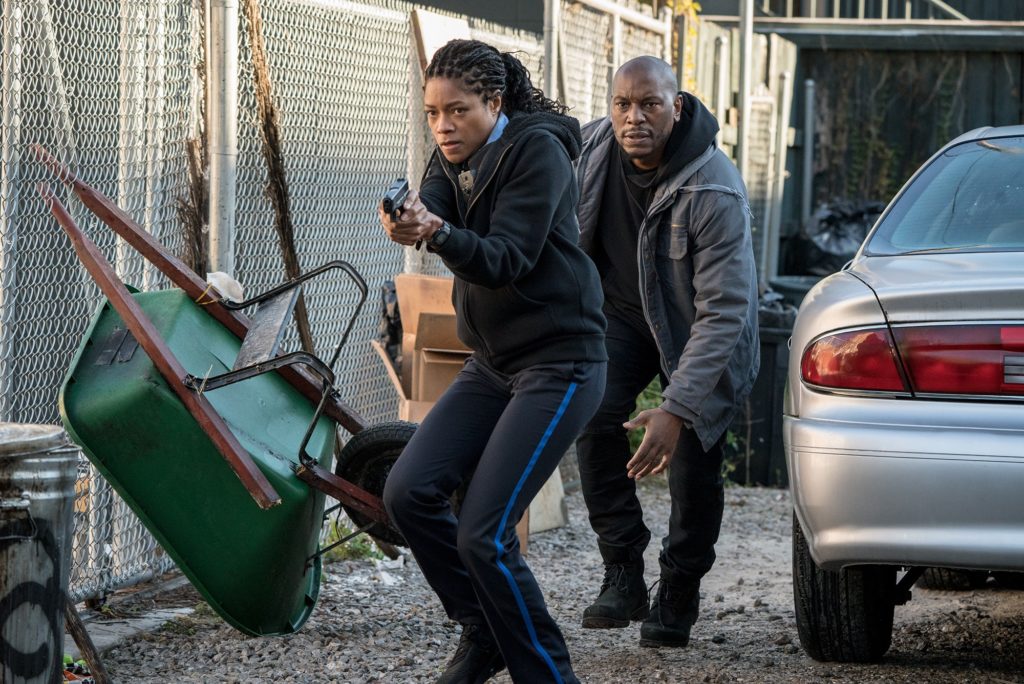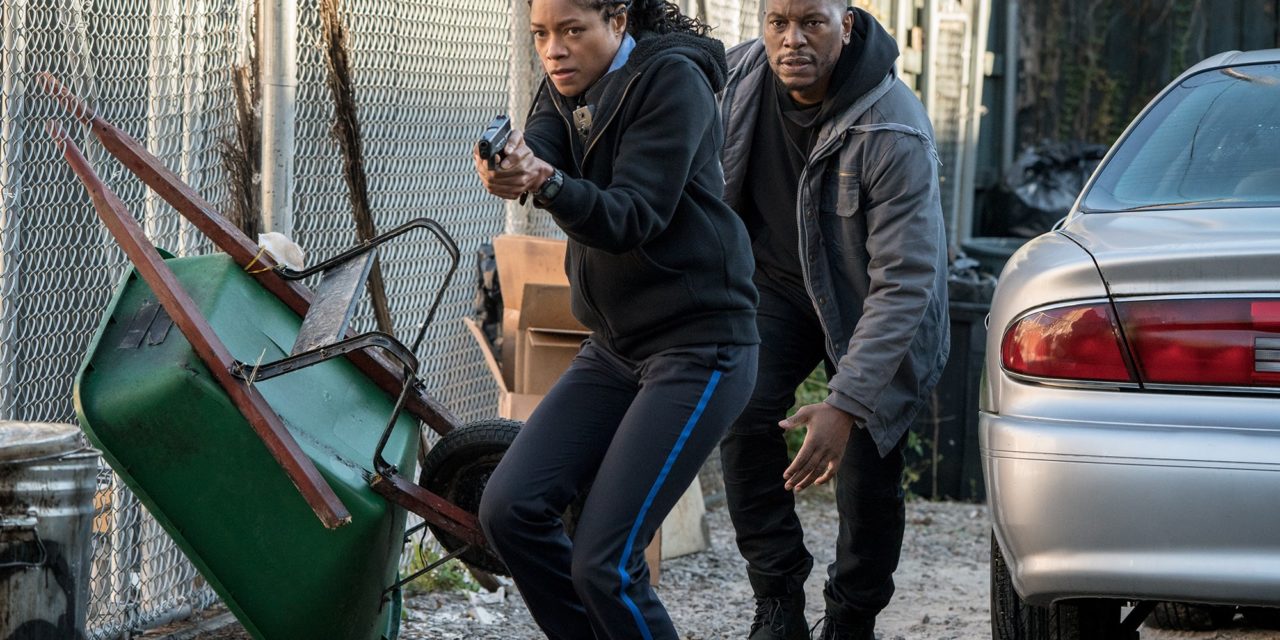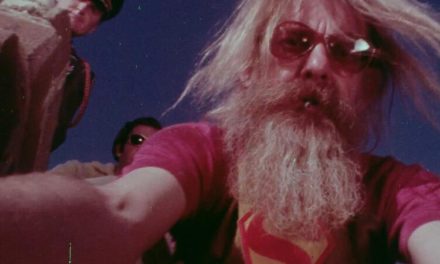
Courtesy of Screen Gems
The best films often draw attention to or deliver commentary on pressing social issues. In recent years, a growing trend in violent policing has had an adverse effect on mental health in the African American community in the United States. Deon Taylor’s “Black and Blue” aims to address this social issue by following Alicia West (Naomie Harris), a black policewoman struggling to choose between loyalty to her community and loyalty to her job.
Atlanta, home to a significant African American community in the U.S., still has issues with police brutality. The Wheel attended a black carpet screening of the film, held at Atlanta’s historic Plaza Theatre and discussed the messages of the film with Harris.
This interview has been edited for clarity and length.
The Emory Wheel (TEW): As a British actress, what struck you about this role and this film that is mostly about American police brutality, and what did you personally take away from this role?
Naomie Harris: What struck me was that this is a film that is hugely entertaining, that keeps you on the edge of your seat and takes you through such a huge range of emotions. It also has a timely message that is socially relevant and leaves you feeling inspired. That’s what I found to be so special about it, and the most inspiring part of it for me was the message of “be the change.” Stop waiting for change to happen outside of you. Be the change yourself.
TEW: In this film, Alicia is rejected by both the black community and the police community, as she struggles to choose between the two. Do you think this is a common struggle black people face in certain professions, and have you experienced this yourself?
NH: I haven’t experienced such a conflict in my profession because I don’t think anybody feels like being an actress is [being] a “sellout.” But I know that for some other professions, it is seen as if joining them is being a sellout to the black community, unfortunately. I think the wonderful thing about this movie is that it says that it is not a sellout to be a policewoman or a policeman. In reality, it is an opportunity to do something really beautiful, to be a hero in your community and to inspire, protect and serve the people. That’s what this profession should really be about, but somewhere along the line, it has become distorted. It has become about people who want to abuse their power. This is an opportunity to see what the profession should really look like.
The film does not shy away from hammering this point home.
“Black and Blue” begins with a “routine” stop-and-frisk. Alicia is casually jogging through her neighborhood when a police cruiser comes up behind her. The situation quickly escalates, and within a few seconds, the officer is pinning Alicia against a fence. She attempts to explain that she is a cop, but it is only when the officer’s partner takes her wallet and discovers that “she’s blue” that the violent encounter ends. Meekly, the officers try to defend their actions by saying that she “matched the description” of someone they were trying to find.
This opening is just as much representative of the film’s strengths as it is of its numerous faults. The fast-paced, action-packed rush keeps the viewer on the edge of their seats, while also attempting to provide a message about the nature of police brutality. The issue, however, is that the scene is too fast-paced for such nuanced subject matter. It tries to provide all the information that viewers need in a quick and entertaining manner, but in the process, it skips over the momentous emotional punch. The weight of the image — a black woman being slammed against a fence simply for being black — is lost due to the scene’s poor pacing.
Much of “Black and Blue” plays out in this space of opposing visceral entertainment and emotional emptiness. Alicia, an Army veteran, returns home to New Orleans and becomes a police officer to help her community. When she witnesses the brutal execution of three unarmed black teens (and is herself shot) by police officers, the film presents a dichotomic dilemma. This all-too-real phenomenon of people of color having to “choose sides” is a complex topic worth portraying on screen, especially from a female perspective. However, the film tends to get too absorbed in showcasing this antithetical choice, rather than capitalizing on the opportunity to pack an emotional punch.
“Black and Blue” tends to be too on the nose about its message against racial violence, which could have been delivered more powerfully had there been more subtlety.
Countless times throughout the film, characters call Alicia a “bitch.” In itself, this powerful derogatory epithet clearly demonstrates the sexist and misogynistic ideas that exacerbate Alicia’s struggle. This could have been used to illustrate the pervasiveness of not just racial discrimination, but also of widespread sexism within the professional world. Instead, the film neither examines nor gives the word a purpose in propelling Alicia to action or rounding out her character. It merely repeats the term over and over so that it eventually becomes gratuitous.
This lack of originality and nuance in the message carries over into the unsurprising plot elements. Despite its subject matter, little that happens in “Black and Blue” is distinct or uncharacteristic of a stereotypical action film. The story arc is foreseeable and the ending predictable, with clichéd lines and intercuts galore. It is obvious that Taylor is passionate about the subject, and it is worth praising his ambition. Yet, if he is reaching for the emotional and cultural impact of Antoine Fuqua’s “Training Day,” a film that also depicts racialized police corruption, Taylor falls considerably short.
Dealing with the critical issues of police violence and racial division, Taylor has sought to create an entertaining film that strives to spur discussion. Unfortunately, despite having many of the right pieces, Taylor is not quite able to solve the puzzle, and the final product leaves viewers desiring more. Ultimately, “Black and Blue” is much too black and white to explore the issue of police brutality in all its nuance and complexity.
Grade: C+
Aayush Gupta (22B) is from Singapore, majoring in finance. He is passionate about soccer and is a die-hard fan of FC Barcelona. His other interests include endlessly talking about movies, international geopolitics, philosophy and dabbling in photography. Contact Gupta at aayush.gupta@emory.edu.






